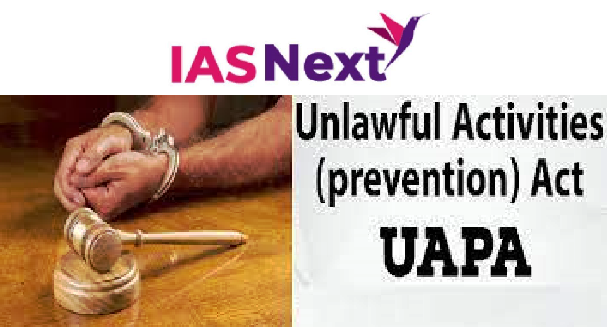CURRENT AFFAIRS
Get the most updated and recent current affair content on Padhaikaro.com
Unlawful Activities Prevention Act (UAPA)?
- IAS NEXT, Lucknow
- 28, Oct 2021

Students in Srinagar who led the celebrations of Pakistan’s victory over India in recent T20 World Cup cricket match will be charged under the Unlawful Activities Prevention Act (UAPA).
- The students will also be marked as overground workers (OGWs) of anti-India organisations in police records and denied all government-funded benefits in future.
How does the government defend its move?
There is nothing wrong in cheering for a good batsman irrespective of his nationality. But singing Pakistan’s anthem on the premises of an Indian institution is an anti-national act.
About the Unlawful Activities (Prevention) Act:
Passed in 1967, the law aims at effective prevention of unlawful activities associations in India.
The Act assigns absolute power to the central government, by way of which if the Centre deems an activity as unlawful then it may, by way of an Official Gazette, declare it so.
- It has death penalty and life imprisonment as highest punishments.
Key points:
Under UAPA, both Indian and foreign nationals can be charged.
- It will be applicable to the offenders in the same manner, even if crime is committed on a foreign land, outside India.
- Under the UAPA, the investigating agency can file a charge sheet in maximum 180 days after the arrests and the duration can be extended further after intimating the court.
As per amendments of 2019:
- The Act empowers the Director General of National Investigation Agency (NIA) to grant approval of seizure or attachment of property when the case is investigated by the said agency.
- The Act empowers the officers of the NIA, of the rank of Inspector or above, to investigate cases of terrorism in addition to those conducted by the DSP or ACP or above rank officer in the state.
- It also included the provision of designating an individual as a terrorist.
Delhi High Court defines the contours of UAPA:
In June 2021, delivering a judgment defining the contours of the otherwise “vague” Section 15 of the Unlawful Activities (Prevention) Act, 1967, (UAPA), the Delhi High Court laid down some important principles upon the imposition of Section 15, 17 & 18 of the Act.
Sections 15, 17 and 18 of UAPA:
- S. 15 engrafts the offence of ‘terrorist act’.
- S. 17 lays-down the punishment for raising funds for committing a terrorist act.
- S. 18 engrafts the offence of ‘punishment for conspiracy etc. to commit a terrorist act or any act preparatory to commit a terrorist act’.
Key observations made by the court:
- “Terrorist Act” Should not be used lightly so as to trivialise them.
- Terrorist activity is that which travels beyond the capacity of law enforcement agencies to deal with under ordinary penal law (Supreme Court’s decision in the case of Hitendra Vishnu Thakur).